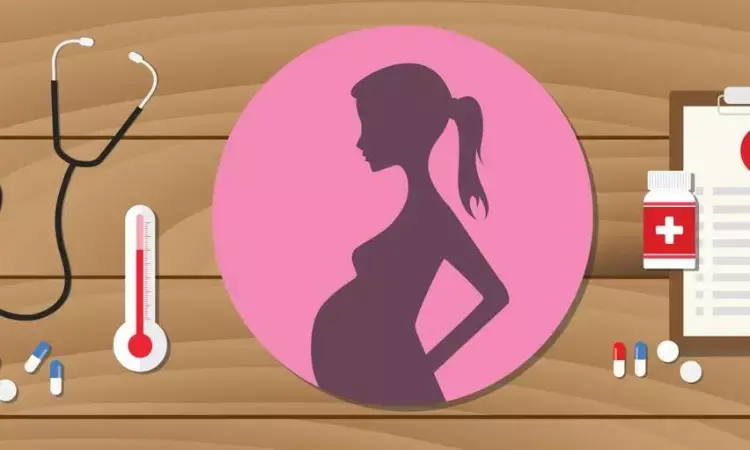- Home
- Medical news & Guidelines
- Anesthesiology
- Cardiology and CTVS
- Critical Care
- Dentistry
- Dermatology
- Diabetes and Endocrinology
- ENT
- Gastroenterology
- Medicine
- Nephrology
- Neurology
- Obstretics-Gynaecology
- Oncology
- Ophthalmology
- Orthopaedics
- Pediatrics-Neonatology
- Psychiatry
- Pulmonology
- Radiology
- Surgery
- Urology
- Laboratory Medicine
- Diet
- Nursing
- Paramedical
- Physiotherapy
- Health news
- Fact Check
- Bone Health Fact Check
- Brain Health Fact Check
- Cancer Related Fact Check
- Child Care Fact Check
- Dental and oral health fact check
- Diabetes and metabolic health fact check
- Diet and Nutrition Fact Check
- Eye and ENT Care Fact Check
- Fitness fact check
- Gut health fact check
- Heart health fact check
- Kidney health fact check
- Medical education fact check
- Men's health fact check
- Respiratory fact check
- Skin and hair care fact check
- Vaccine and Immunization fact check
- Women's health fact check
- AYUSH
- State News
- Andaman and Nicobar Islands
- Andhra Pradesh
- Arunachal Pradesh
- Assam
- Bihar
- Chandigarh
- Chattisgarh
- Dadra and Nagar Haveli
- Daman and Diu
- Delhi
- Goa
- Gujarat
- Haryana
- Himachal Pradesh
- Jammu & Kashmir
- Jharkhand
- Karnataka
- Kerala
- Ladakh
- Lakshadweep
- Madhya Pradesh
- Maharashtra
- Manipur
- Meghalaya
- Mizoram
- Nagaland
- Odisha
- Puducherry
- Punjab
- Rajasthan
- Sikkim
- Tamil Nadu
- Telangana
- Tripura
- Uttar Pradesh
- Uttrakhand
- West Bengal
- Medical Education
- Industry
Aspirin prevents Preeclampsia and related Morbidity and Mortality: USPSTF

US Preventive Services Task Force updated its 2014 recommendation as published in the JAMA and commissioned a systematic review to evaluate the effectiveness of low-dose aspirin use to prevent preeclampsia.
Pregnant persons at high risk for preeclampsia who have no prior adverse effects with or contraindications to low-dose aspirin were selected.
The USPSTF concludes with moderate certainty that there is a substantial net benefit of daily low-dose aspirin use to reduce the risk for preeclampsia, preterm birth, small for gestational age/intrauterine growth restriction, and perinatal mortality in pregnant persons at high risk for preeclampsia.
Below is the summary of the recommendations:
· Preeclampsia is one of the most serious health problems that affect pregnant persons.
· It is a multisystem inflammatory syndrome that is often progressive but has an unclear aetiology.
· Worldwide, preeclampsia is the second most common cause of maternal morbidity and mortality.
· It is a complication in approximately 4% of pregnancies in the US and contributes to both maternal and infant morbidity and mortality.
· Preeclampsia also accounts for 6% of preterm births and 19% of medically indicated preterm births in the US.
· There are racial and ethnic disparities in the prevalence of and mortality from preeclampsia.
· Non-Hispanic Black women are at greater risk for developing preeclampsia than other women and experience higher rates of maternal and infant morbidity and perinatal mortality than other racial and ethnic groups.
· In the US, the rate of maternal death from preeclampsia is higher among non-Hispanic Black women than non-Hispanic White women.
· Disparities in risk factors for preeclampsia, access to early prenatal care, and obstetric interventions may account for some of the differences in prevalence and clinical outcomes.
· These disparities largely result from historical and current manifestations of structural racism that influence environmental exposures, access to health resources, and overall health status
Reference:
Aspirin Use to Prevent Preeclampsia and Related Morbidity and Mortality: US Preventive Services Task Force Recommendation Statement
doi:10.1001/jama.2021.14781
Dr. Shravani Dali has completed her BDS from Pravara institute of medical sciences, loni. Following which she extensively worked in the healthcare sector for 2+ years. She has been actively involved in writing blogs in field of health and wellness. Currently she is pursuing her Masters of public health-health administration from Tata institute of social sciences. She can be contacted at editorial@medicaldialogues.in.
Dr Kamal Kant Kohli-MBBS, DTCD- a chest specialist with more than 30 years of practice and a flair for writing clinical articles, Dr Kamal Kant Kohli joined Medical Dialogues as a Chief Editor of Medical News. Besides writing articles, as an editor, he proofreads and verifies all the medical content published on Medical Dialogues including those coming from journals, studies,medical conferences,guidelines etc. Email: drkohli@medicaldialogues.in. Contact no. 011-43720751


